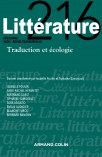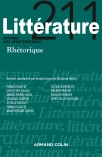
Romantisme N°200 (2/2023)
Pour acheter ce numéro, contactez-nous
Recevez les numéros de l'année en cours et accédez à l'intégralité des articles en ligne.
La chanson populaire allemande commence à être importée en France à partir des années 1830, parallèlement au développement de l’intérêt pour la chanson en général. Chez les médiateurs germanistes, les conceptions de celle-ci s’élaborent à la croisée des théories allemandes et des représentations des folkloristes français, issues du reste de la pensée d’outre-Rhin. Dans ce cadre, la notion de chanson est presque entièrement réduite à ses formes folkloriques. Des points de divergence existent cependant, explicables en grande partie par les enjeux spécifiques – idéologiques et politiques – que comporte un tel objet dans la France des années 1830 jusqu’à la fin du siècle. Or, bien qu’appartenant aux classes dominantes, comme les spécialistes des traditions françaises, les médiateurs sont moins impliqués sur le plan politique et contribuent ainsi à éclairer, en creux, les motivations profondes de leurs confrères.
German popular songs started to be imported to France in the 1830s, in parallel with the development of interest in song in general. Among German mediators, the way song is conceived of is at the cross-roads between German theory and the representations of French folklorists, due anyway to the thinking beyond the Rhine. In such a context, the idea of song is almost entirely reduced to its folk forms. Points of divergence do nonetheless exist, which can be explained by the specific issues at stake — both ideological and political — regarding such a topic in the France of the 1830s to the end of the century. However, the mediators, even though they belong to the same dominant class as do the French academic specialists, are less implicated politically and thus also, as the negatives of a photograph do, throw light upon the deeper motives animating their colleagues.

